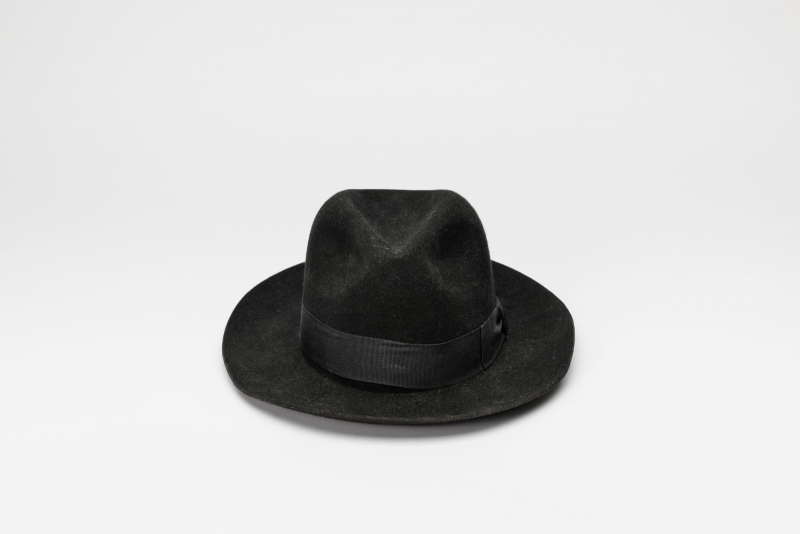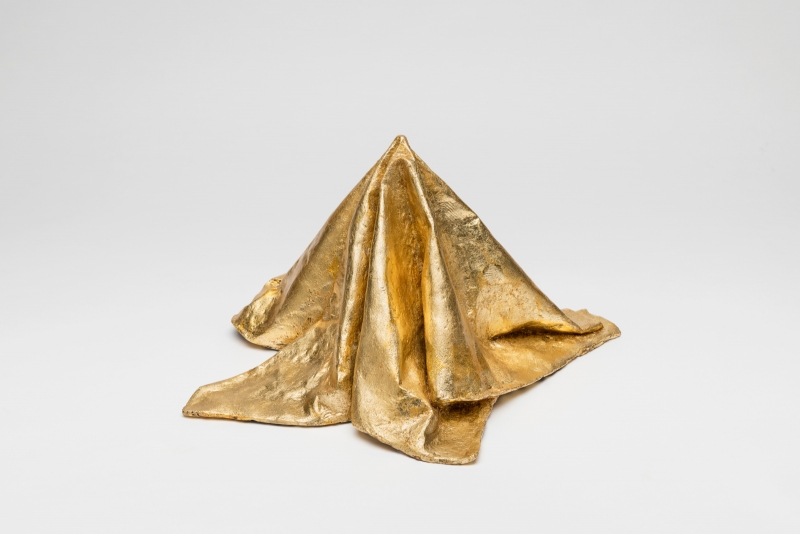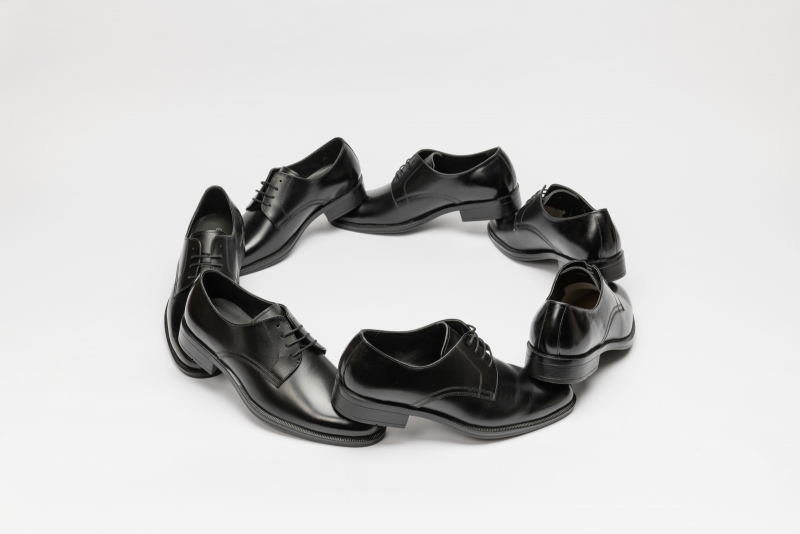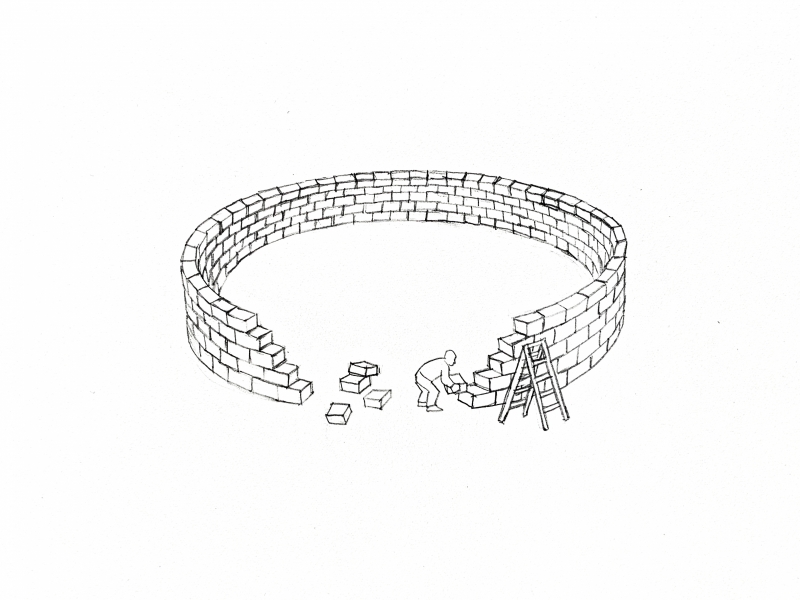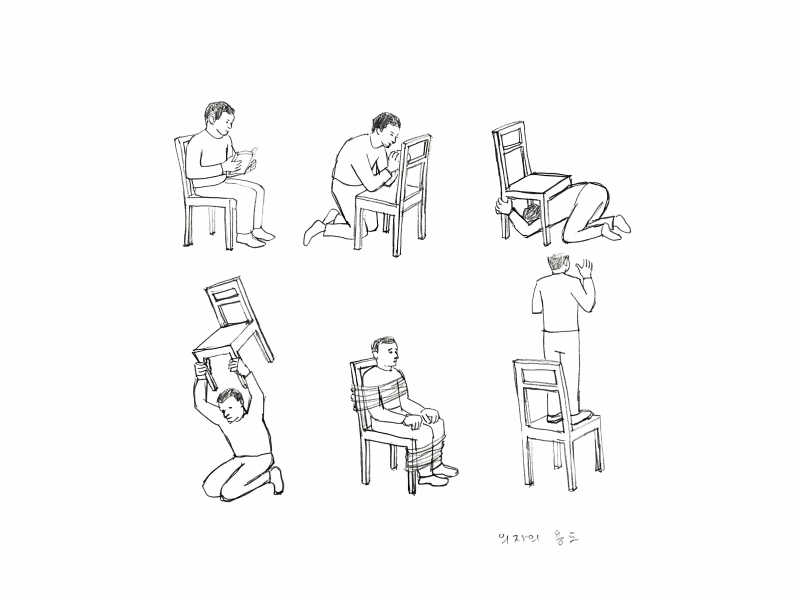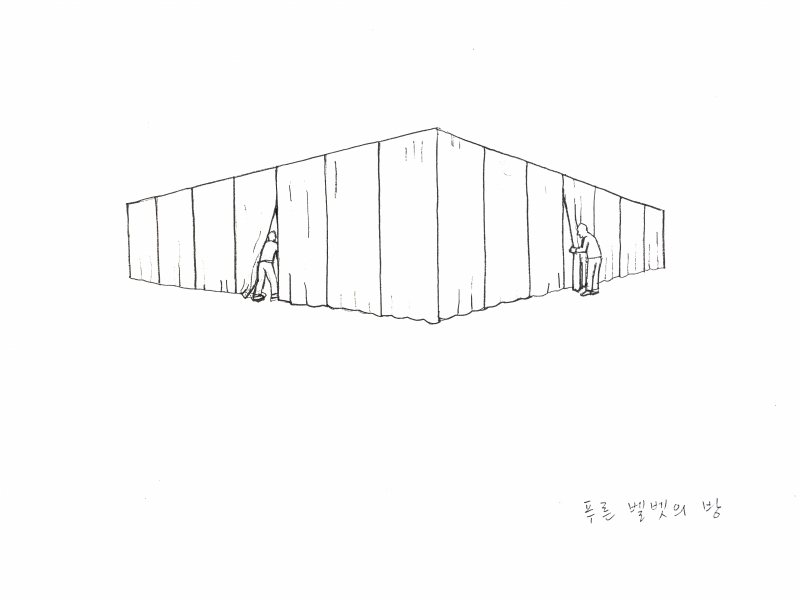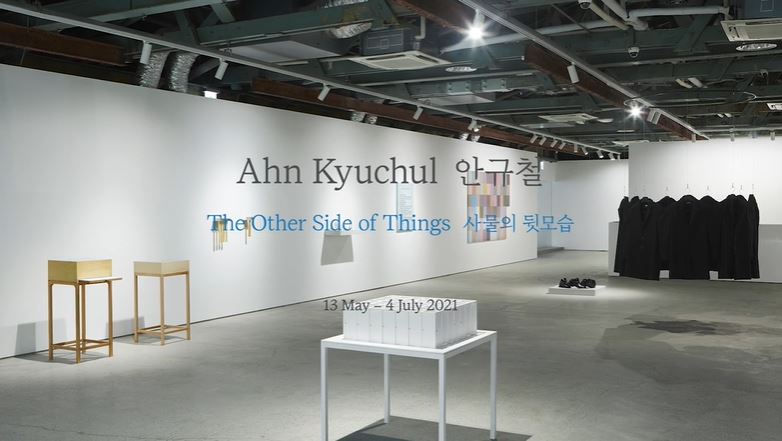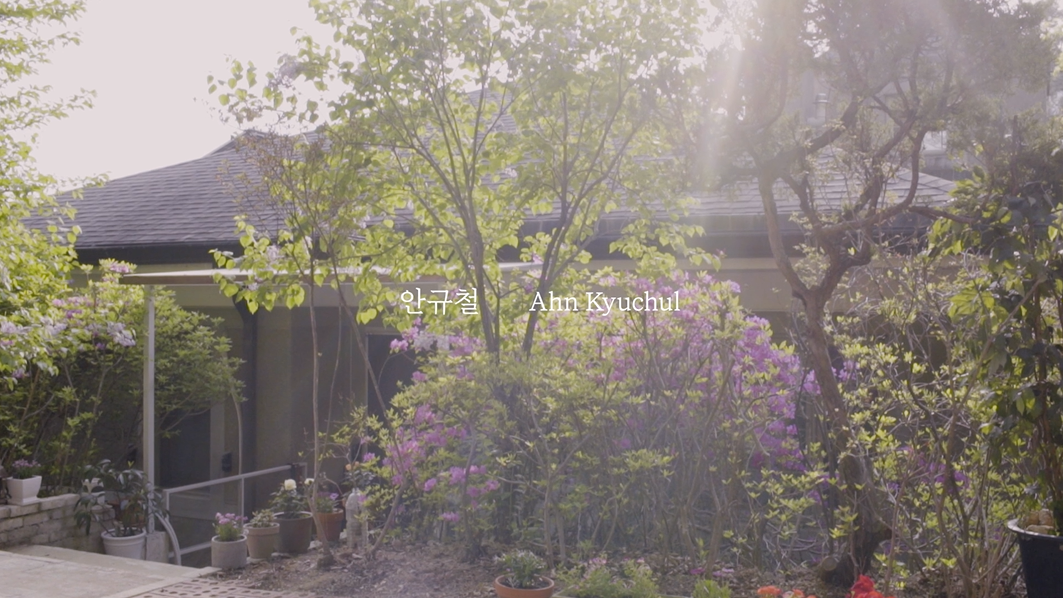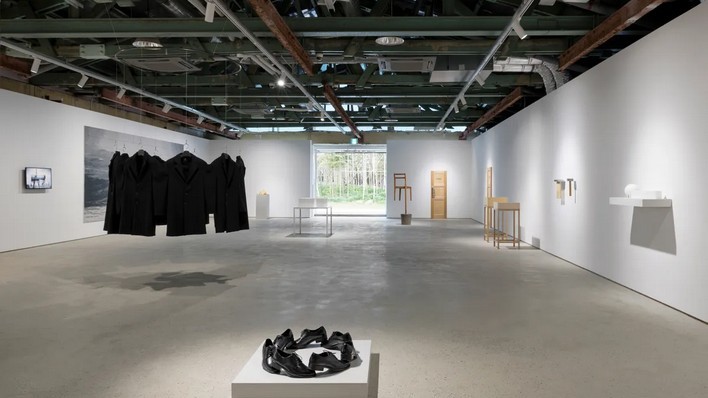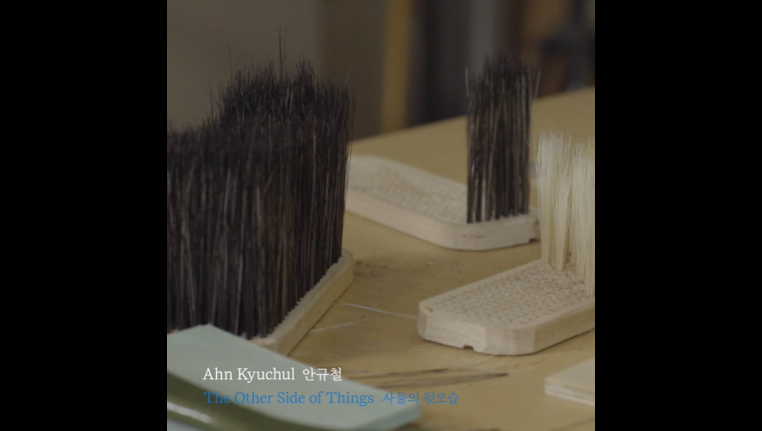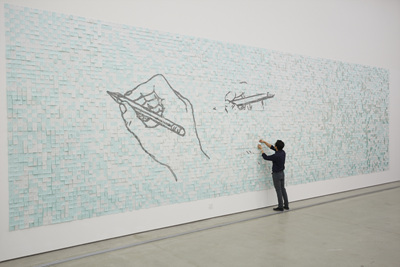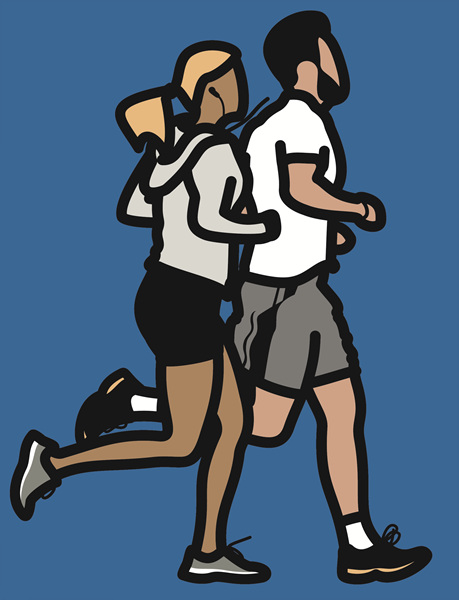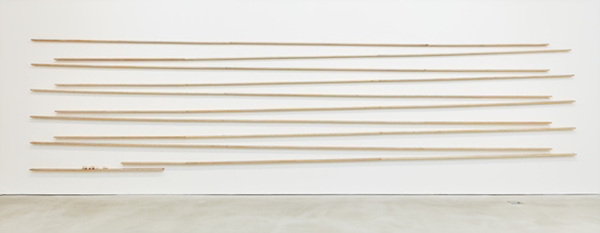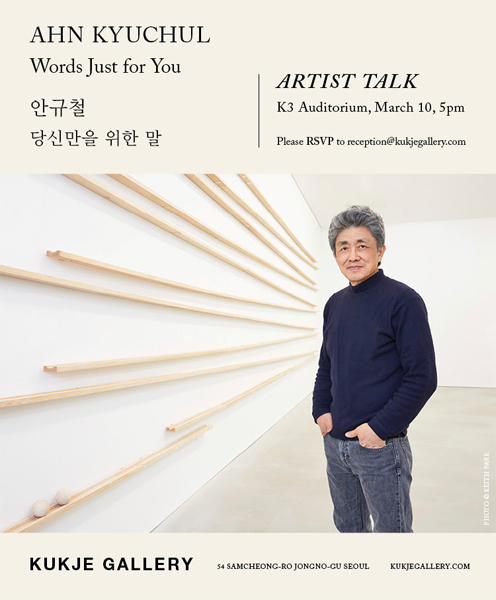 The Other Side of Things | KUKJE GALLERY
The Other Side of Things | KUKJE GALLERY
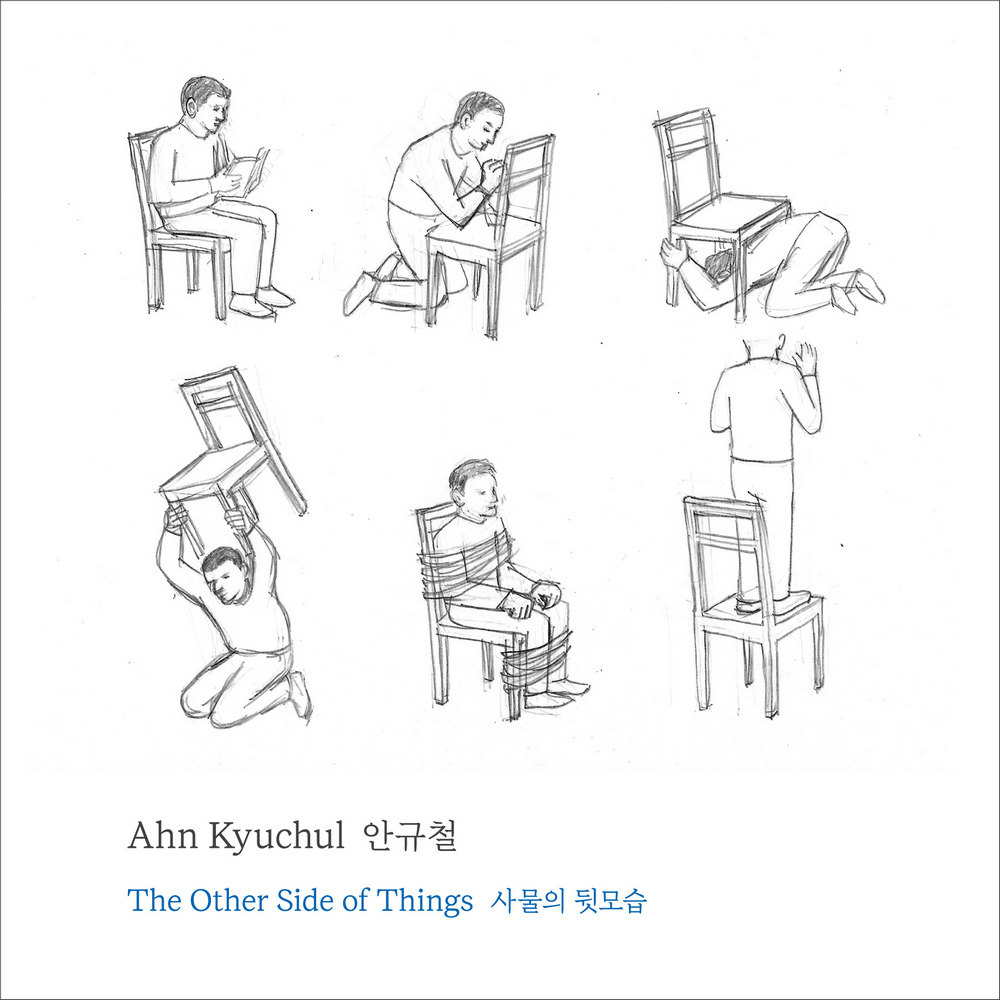
May 13, 2021 - Jul 25, 2021
INTRODUCTION
Ahn’s first ever solo show in Busan provides a survey of the artist’s diverse practice and introduces a new chapter in his career following his retirement from the School of Visual Arts, Korea National University of Arts where he taught generations of students. The exhibition, marking the artist’s first encounter with local audiences in Busan, will provide a comprehensive overview of Ahn’s practice, introducing a range of his signature works.
The title of the exhibition, The Other Side of Things, condenses a central belief that lies at the core of Ahn’s artistic practice, “The truth is not revealed on the surface of an object, but remains hidden on the other side of things.” The exhibition introduces approximately 40 works encompassing objects, paintings, and drawings, including everyday objects that often go unnoticed; this reframing of familiar subjects highlights the artist’s steadfast exploration of “the other side of things” throughout his three-decade-long career.
Ahn lived and worked in Germany between the late 1980s to the early 1990s, a pivotal period that saw the artist liberate himself from the use of traditional materials in order to engage the often contradictory values of modernity. Incorporating everyday objects and language into his practice, Ahn began to articulate what became his unique practice balancing critique and poetry. Many of the works on view in The Other Side of Things provide an interpretation of these early “object sculptures,” reintroducing them in new or modified, yet more cohesive compositions. 2/3 Society (1991), originally a set of three leather shoes connected in linear format, now forms a circle made of seven leather shoes attached heel to toe, playing on the circle as a metaphor for the interconnected relationships and interactions in our society. The circle and its symbolic social role are also at work in a reconstruction of Solidarity Makes Freedom (1992), with the new version featuring nine—previously three—coats attached together to form a roughly circular form, the title implying a potent albeit abstract message. The work explores the subject of boundaries between the self and others, us and them, inside and outside, and barriers that prevent intrusion. Another work, A Guilty Brush (1990-91), which consisted of a black shoe brush—has also been modified to depict the word “sin” portrayed in white, gradually fading into the surrounding white bristles.
Ahn’s early years as an artist can be defined by an extensive use of modified and reframed everyday objects, which later grew to involve works based on a more architectural scale after his solo exhibition in 2004 at the Rodin Gallery, Seoul—a turning point that led to a shift in perspective. The upcoming exhibition in Busan attempts to revisit a handful of these more ambitious installations—including Room with 112 Doors (2004) and Room of Silence (2015), which were dismantled upon the close of each show, only surviving as archival photographs—in the form of models constructed by the artist.
From Where They Left – Stormy Ocean (2021), is also on view at the gallery. Initially conceived as a collection of 200 paintings depicting the sea, each of these paintings were distributed randomly across the city before the start of the 2012 Gwangju Biennale. Throughout the duration of the biennale, these lost paintings were then sought after by Ahn, who posted signs in search for them. By the end of the event, approximately 20 paintings were returned, leading the artist to display the piece with many parts still “missing,” as a tribute to those who disappeared after the Gwangju Uprising in 1980. Reproduced in its entirety for the upcoming show, this will mark the first time the work has been staged in its original form. Also on view is the more recent Colors of Promises (2020), which features 69 monochrome paintings that borrow colors from campaign posters for all the Korean presidential candidates between 1967 and 2017, stripped of any slogans or messaging.
Ahn’s artistic vocabulary is rooted in his drawings, often wittily executed with relative ease and humor in comparison to the artist’s more serious “object sculptures” and paintings. The 20 pencil drawings exhibited throughout the gallery space provide viewers with a broad overview, framing the artist’s ideas and underlying his formal interests while helping them understand the complex critical perspective and working process that underlie Ahn’s practice.
Introducing key works that have formed the bedrock of the artist’s oeuvre for three decades, The Other Side of Things remains committed to offering a comprehensive understanding of Ahn’s artistic career by presenting original works that have undergone various stages of restoration and reinterpretation. The show represents an ambitious attempt by the artist to survey whether his objects, first used for his solo exhibition in 1992, still hold relevance in the present and resonate with contemporary audiences. By bracketing this time period and the way objects mirror social values, Ahn examines how our collective awareness and perception of art have changed over the years.
Meanwhile in March, a compilation of 69 sets of texts and drawings, completed by the artist since 2014 for the literary magazine Hyundae Munhak, was published under the same title The Other Side of Things. The book, which sheds light on Ahn’s unique process of appropriating and manually altering ready-made objects and combining them with his own writing, provides an invaluable opportunity to gain insight into Ahn’s use of text and drawing as a parallel and complimentary practice.
About the Artist
Born in Seoul, Korea in 1955, Ahn Kyuchul received his BFA in Sculpture from Seoul National University and worked as a journalist for Art Quarterly from 1980 through 1987. He then moved to Paris in 1987, and to Germany in 1988, graduating from the State Academy of Fine Arts Stuttgart in 1995 after completing both undergraduate and graduate programs. From 1997 to 2020, he taught at the School of Visual Arts, Korea National University of Arts. Major solo exhibitions include Words Just for You at Kukje Gallery, Seoul (2017); Invisible Land of Love at the National Museum of Modern and Contemporary Art, Seoul (2015); All and but Nothing at HITE Collection, Seoul (2014); and Forty-Nine Rooms at Rodin Gallery, Seoul (2004). Ahn has also participated in numerous group exhibitions at institutions and biennales including Variations of the Moon at the Nam June Paik Art Center, Yongin (2014); ROUNDTABLE: The 9th Gwangju Biennale (2012); Void in Korean Art at Leeum, Samsung Museum of Art, Seoul (2007); and Parallel Life at Frankfurter Kunstverein (2005).
국제갤러리는 오는 5월 13일부터 7월 4일까지 부산점에서 한국 현대미술계의 중추적 작가 안규철의 개인전 《사물의 뒷모습》을 개최한다. 안규철은 강렬한 자극과 생경한 감각적 경험을 제공하는 것이 미술의 주된 일이 된 오늘날에도 삶과 세계를 성찰하는 작업에 집중하면서 일상과 사물 그리고 언어를 섬세하게 관찰하는 복합적인 형태의 작품세계를 구축해왔다. 작가 고유의 개념적 사고와 현실의 우회적 재현에 바탕을 둔 그의 독자적이고도 다양한 작업은 우리가 잊고 있던 사물과 인간의 본질을 사유하고 더 나아가 세계의 부조리와 모순을 대면할 수 있도록 이끈다.
특히 이번 전시는 부산에서의 첫 개인전이자 오랜 교직생활의 마침표를 찍고 작가로서 또 다른 시작을 알리는 의미 있는 자리다. 그간 작가의 원작을 볼 기회가 많지 않았던 부산 관객들에게 일시적 설치작품 위주로 구성된 프로젝트 전시보다는 작가의 대표작들을 소개하는 데 중점을 두고 주요 작품세계를 조명한다.
《사물의 뒷모습》이라는 전시 제목에는 “진실은 사물의 표면보다 보이지 않는 이면에 숨어있다”는 작가의 핵심 사유가 함축적으로 담겨있다. 이러한 생각을 바탕으로 탄생한 오브제, 회화, 드로잉 작품 40여 점은 일상에서 쉽게 지나쳐 버리는 사소한 것들의 의미, 더 나아가 제목에서 말한 바 ‘사물의 뒷모습에 숨은 의미’를 지속적으로 질문해온 지난 30여 년의 작가적 여정을 보여준다.
이번 개인전에서는 작가의 유학 시절, 즉 1980년대 말부터 1990년대 초 관습적인 미술 재료에서 벗어나 사람들이 일상의 삶 속에서 사용하는 사물과 언어를 소재로 세상의 모순을 드러냈던 오브제 작품을 한층 완결성 있는 모습으로 주효하게 선보인다. 예를 들어 구두 세 켤레를 이어 붙인 <2/3 사회>(1991)가 원형을 그리며 서로 맞물리는 형태로 변형되면서 모든 것이 상호관계 속에 묶여있는 사회를 은유 한다. ‘단결해야 자유를 얻는다’는 의미를 전제하며 붙어있는 세 벌의 외투 <단결 권력 자유>(1992)는 이번에 아홉 벌로 확장, 형성된 둥근 고리를 통해 자아와 타인, 우리와 그들, 안과 밖을 나누는 경계 그리고 타자의 진입을 가로막는 장벽으로 변화한다. 검정 구두 솔을 활용한 <죄 많은 솔>(1990-91)의 경우, 솔에 하얀색으로 또렷하게 박혀있던 ‘죄’라는 글씨가 점점 늘어나는 흰색 솔들 사이에서 자취를 감추는 형국으로 다시 등장한다.
작업 초기 일상 사물의 규모에 머물던 오브제 작품의 스케일은 지난 2004년 삼성미술관 로댕갤러리에서 열린 개인전 이후 점차 건축적 규모로 확대되었다. 이번 전시에서는 그 중 <112개의 문이 있는 방>(2004)과 <침묵의 방>(2015) 등 전시 종료와 함께 해체되어 사진으로만 남아있던 해당 시기의 주요 작품을 축소된 모형으로 재현한다.
지난 2012년 광주비엔날레에서 선보였던 회화 <그들이 떠난 곳에서-바다>도 다시 만날 수 있다. 당시 작가는 200개의 캔버스에 그린 바다 그림을 광주 시내 곳곳에 배치한 후 전시 기간 내내 ‘그림을 찾습니다’라는 공고를 냈다. 이 때 작가에게 다시 돌아온 그림은 20 여 점 남짓이었고, 광주비엔날레 전시관에는 작품 대부분이 ‘실종’된 상태로 전시되었다. 이번 전시에서는 당시 관객이 볼 수 없었던, 200개 캔버스의 원래 작품이 재제작되어 온전한 상태로 소개될 예정이다. 이와 함께 69개의 역대 대통령 선거 벽보를 선거구호와 형상이 제거된 모노크롬 회화로 변형한 <약속의 색>(2020)을 공개한다.
작가에게 있어 이 모든 작업의 출발점이자 중요한 수단인 드로잉 20점은 이번 전시에 대한 전반적인 이해를 도울 것으로 기대된다. 진지하고 무거운 느낌의 오브제나 회화 작품보다는 가볍고 재치 있는 소박한 연필 드로잉을 통해서 실제 작품을 만들기 전 작가의 생각과 작업을 대하는 본질적인 태도 등을 살펴볼 수 있다.
이번 《사물의 뒷모습》전에서는 작가의 첫 개인전부터 최근까지 지난 30여 년 작업의 변화를 조망한다. 그 중 일부 소실된 핵심적인 작품은 복원하거나 보완, 발전시킨 형태로 재현하여 선보인다. 작가는 1992년 첫 전시에서 발표한 자신의 오브제 작업들과 그 가치가 지금도 유효한지, 30여 년 후인 오늘날의 관객들에게 어떻게 받아들여지는지를 질문하며 그간 우리의 미술에 대한 인식에 과연 어떤 변화가 있었는지 함께 살펴보고자 한다.
한편 작가가 지난 2014년부터 월간 순수 문예지 『현대문학』에 연재한 글과 그림 69편을 엮은 동명의 책 <사물의 뒷모습>이 올해 3월 출간되었다. 기성품의 형태를 수공업적으로 복제하는 오브제 작품들 속에 담긴 작가의 사유와 그의 작업세계에서 중요한 축을 이루는 ‘글쓰기’를 연동시킨 이 책은 같은 제목의 이번 부산 전시와 더불어 안규철이라는 미술가와 그의 유의미한 행보를 보다 깊이 이해할 수 있는 기회를 제공한다.
작가 소개
1955년에 서울에서 태어난 안규철은 1977년 서울대학교 미술대학 조소과를 졸업했다. 1980년부터 1987년까지 『계간미술』 기자로 활동하면서 1985년 ‘현실과 발언’에 참여했다. 1987년 프랑스 파리로 유학 후 1988년 독일로 이주, 슈투트가르트 국립미술학교에 입학해 1995년 동 대학 학부 및 연구과정을 졸업했다. 1997년부터 2020년까지 한국예술종합학교 미술원 교수로 재직했다. 주요 개인전으로는 국립현대미술관 서울관에서 열린 《안 보이는 사랑의 나라》(2015), 《모든 것이면서 아무것도 아닌 것》(하이트컬렉션, 2014), 《49개의 방》(삼성미술관 로댕갤러리, 2004)이 있으며, 2017년에는 국제갤러리에서 개인전 《당신만을 위한 말》을 열었다. 백남준아트센터에서 열린 《달의 변주곡》(2014), 제9회 광주비엔날레 《라운드 테이블》(2012), 삼성미술관 리움 《한국미술-여백의 발견》(2007), 독일 프랑크푸르트 쿤스트페어라인 (Kunstverein)에서 개최한 《Parallel Life》(2005) 등 다수의 단체전에 참가한 바 있다.
WORKS
|
Hat II (detail) |
Trivialities |
|
|
2/3 Society II |
Incomplete Wall |
|
|
The Use of a Chair |
Blue Velvet Rooms |
|
INSTALLATIONS
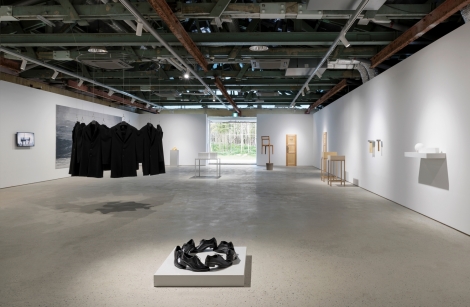
|
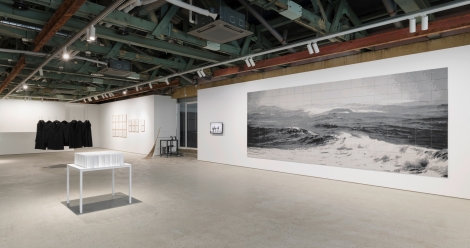
|
|
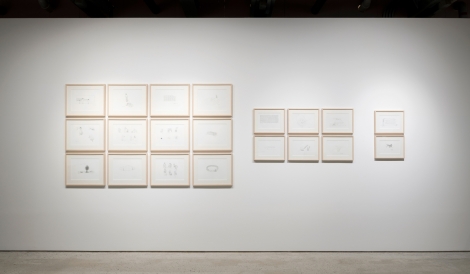
|
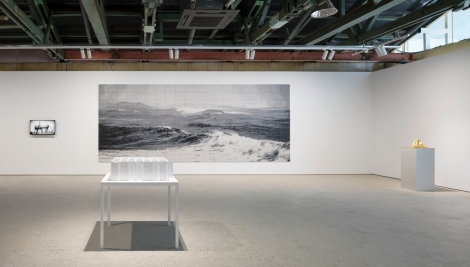
|
|
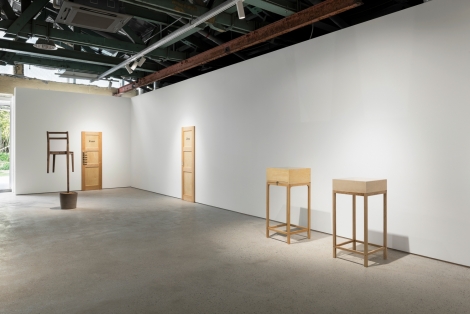
|
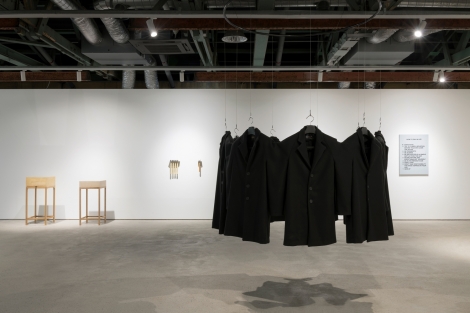
|
|
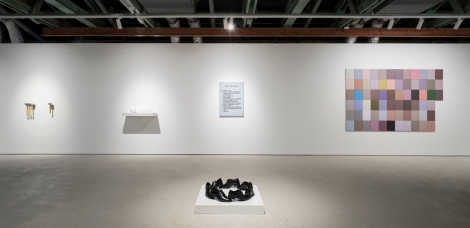
|
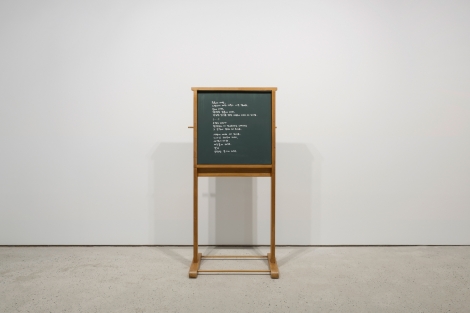
|
|
VIDEOS
|
Installation Video |
|
|
|
Virtual Exhibition |
Teaser Trailer |
|
MEDIA COVERAGE
일간지
월간지
방송
